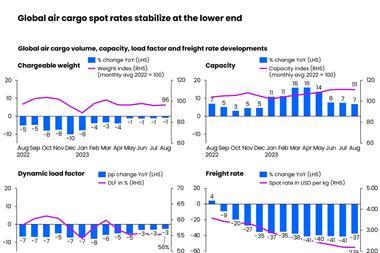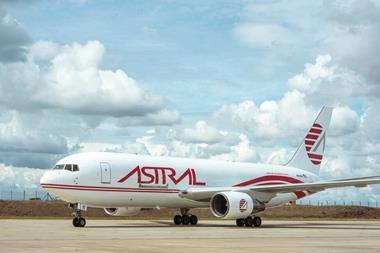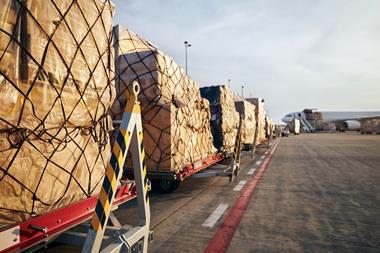Emerging reports suggest that the air cargo market may finally be showing signs of a slight improvement after a year and a half in the doldrums.
The latest market report from data provider WorldACD shows that air cargo demand last week increased by 4% on the previous seven days, which itself was stable compared with the end of August.
Meanwhile, the data firm said that rates increased slightly by 1% last week compared with a week earlier.
Prices have broken out of the bandwidth that WorldACD has been reporting since mid July – between $2.26 and $2.29 per kg - now reaching $2.31.
Freight forwarder Flexport also reported a pick-up in demand last week, particularly out of Asia.
"Overall market demand for airfreight capacity is on the increase — particularly from Asia to the US and Europe," the forwarder said.
"Southeast Asian countries such as Thailand, Vietnam, Singapore and Malaysia are most impacted with surging demand levels due to consumer electronics and semiconductor production.
"At the same time, China and Hong Kong are experiencing rising demand levels due to e-commerce activity and New Product Introduction.
"Because all of this volume routes through 3 primary export gateways in Asia—HKG, PVG, and TPE—capacity is impacted resulting in extended transit times and rising rate levels."
There has been much debate in recent weeks as to what sort of peak season the air cargo industry can expect.
Many have been predicting demand to be flat across the final part of the year, while others hold out hope for a slight pick up in demand.
Xeneta chief airfreight officer Niall van de Wouw recently said of the market: “We are picking up signals that it could take another few quarters before we see more demand on a global level.
“August was very quiet, like July, and we see no meaningful signals from a qualitative or quantitative point of view of any kind of peak arising this year.
“There might be some early peak season charter requests floating around but they are backed up by very little demand.
“The (low) rates and the limited timeframe that the requestors are looking for signal that they are not too concerned at the moment about getting the required capacity when they actually need it.
“The market seems to have levelled out, but still holds a lot of uncertainty, and not just for airfreight.















